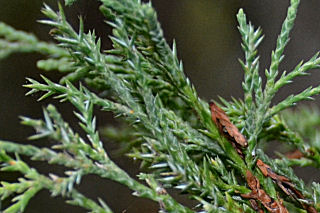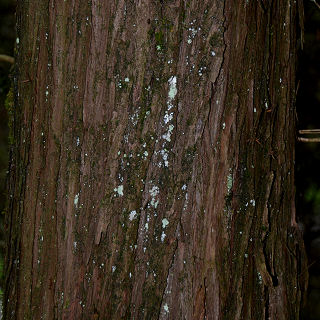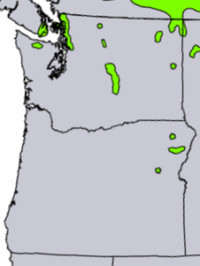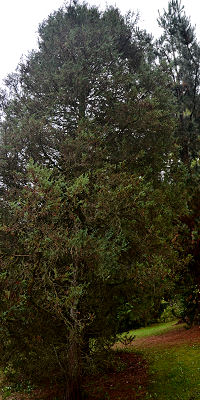
Leaves: The scale-like leaves are arranged in opposite pairs. They are green or gray-green, with no resin dots like those on Western Juniper.

Cones: The cones form small,soft, juicy berries that are blue and coated with a white film.
Bark: The bark is reddish-brown. On larger trees, it breaks into flat ridges with long flaky scales.

Where it grows: Rocky Mountain Juniper is not common in the Northwest. It grows in a few mountainous, dry areas in central Washington and the northeast corners of Oregon and Washington. It also grows throughout much of the Rocky Mountains.

Seaside juniper: Curiously, some of these junipers grow in the Puget Sound area. Based on DNA analysis, they have recently been classified as a separate species: Seaside juniper (Juniperus maratima.) Although these junipers live in a very different habitat from the Rocky Mountain junipers east of the Cascades, they look very similar. The best way to distinguish them is by location.
Uses: There are several popular cultivars of this species. It is also a popular bonsai plant.
Names:
The name scopulorum
refers to "tree growing
in rocky ground."
Pronounce
Juniperus
scopulorum.

© 2012 Ken Denniston